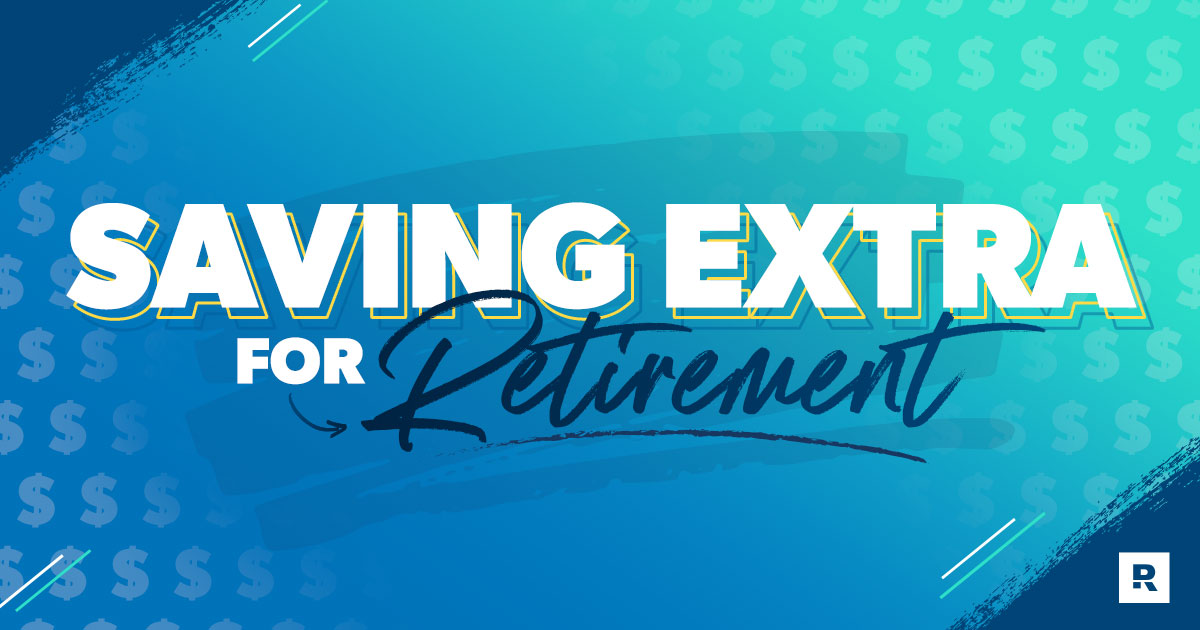How to Save an Extra $300 Every Month for Retirement
5 Min Read | Sep 6, 2023

According to the Federal Reserve, about 1 out of 4 American workers (26%) have nothing saved for retirement and only 37% feel like they’re saving enough for retirement.1
Here’s the deal: A lot of people out there simply aren’t saving enough for their golden years—if they’re saving anything at all. Maybe that’s you. But it could be easier than you think to turn things around!
Just dream with us for a minute. What if you started working with an investment pro today and found ways to add an extra $300 per month into your retirement accounts? If you did that for just five years, you could add over $368,000 to your nest egg in 30 years.
That means with a little planning and a big dose of motivation, nearly everyone can retire with at least enough money to cover their bills.
We'll show you how.
4 Quick Ways to Boost Your Retirement Savings
To get the kind of retirement we all dream of, you need to consistently invest 15% of your gross income into your retirement accounts, like a 401(k) and IRA. Where can you find $300 a month in your budget to add to your nest egg?
Your first thought might be to slash your restaurant or entertainment budget or to get a second job. Obviously, if you’re overspending in those areas, cutting back is a wise choice. And extra income from a side job makes reaching any financial goal much easier.
But you may not have to completely sacrifice your time and your small luxuries. Here are a few painless but effective options to kick-start your retirement plan.
1. Take advantage of your raises.
Any time you get a bump in pay, you need to celebrate—not because you can buy more stuff, but because you can roll that money right into your retirement account! Generally, most workers can expect a pay bump of around 3% each year.2 With the median household income standing at around $65,700, that 3% raise could be worth roughly $1,970 this year.3 That works out to about $165 a month! Getting a bonus? Shift that into your 401(k) or Roth IRA for an easy way to reach your investing goal without ever touching any item in your budget!
2. Fix your tax withholding.
The average income tax refund was around $2,700 for the 2020 tax season.4 That’s a hefty sum to loan to Uncle Sam for a year. It just takes a few minutes to reduce your tax withholding amounts so that money can go to your 401(k) instead of the government—to the tune of $230 a month!
3. Throw a yard sale and sell some stuff.
People spend millions of dollars at yard sales each week in the U.S. Get in on that action and sell some stuff! Put the profits toward retirement investments, where even $100 can turn into thousands of dollars in your nest egg. And based on the stuff we’ve seen at garage sales, you can rack up more than $100 easy!
4. Cut down on miscellaneous expenses.
Don’t forget about small expenses that can add up.
- Cell phone bills can be pricy these days, and with unlimited plans making a comeback, it’s easy to overpay for services, features and data that you don’t really use. If you only use 3 GB of data, why pay for 16 GB? By switching carriers or opting for a plan with less data, you could have an additional $50 a month to put toward your future wealth.
- Have you checked your cable bill recently? The average monthly cable package costs around $217—but some cable watchers end up paying much more for premium channels.5 It’s time to cut the cord, people! Switch to a streaming service and direct those extra savings to your monthly retirement investing. An extra $100 per month could turn into roughly $280,000 in 30 years. Not a bad trade-off for turning off the reruns.
Using just a couple of these options has the potential to put you above your $300-a-month-extra retirement investing goal—and those are just a few of the possibilities. Get creative and see what else you can come up with. Keep in mind that this isn’t just a penny-pinching exercise. Every dollar you add to your monthly contributions means more money for your dream retirement!
Make Your Money Work for You
After all that work finding money to invest for retirement, the last thing you want to do is put it in a bad investment. A 401(k) with a matching contribution from your employer is a good place to start since it gives you an instant—and guaranteed—return on your money.
How much will you need for retirement? Find out with this free tool!
But don’t stop there. Add a Roth IRA for tax-free withdrawals in retirement and a wider selection of good growth stock mutual funds. Don’t follow in the footsteps of the majority of Americans who keep putting off saving for retirement.
Find an investment pro in your area today!
Want to learn more? Dave's new book, Baby Steps Millionaires, will show you the proven path that millions of Americans have taken to become millionaires--and how you can become one too! Pre-order your copy today to learn how to bust through the barriers preventing you from becoming a millionaire.
Make an Investment Plan With a Pro
SmartVestor shows you up to five investing professionals in your area for free. No commitments, no hidden fees.
This article provides general guidelines about investing topics. Your situation may be unique. If you have questions, connect with a SmartVestor Pro. Ramsey Solutions is a paid, non-client promoter of participating Pros.


